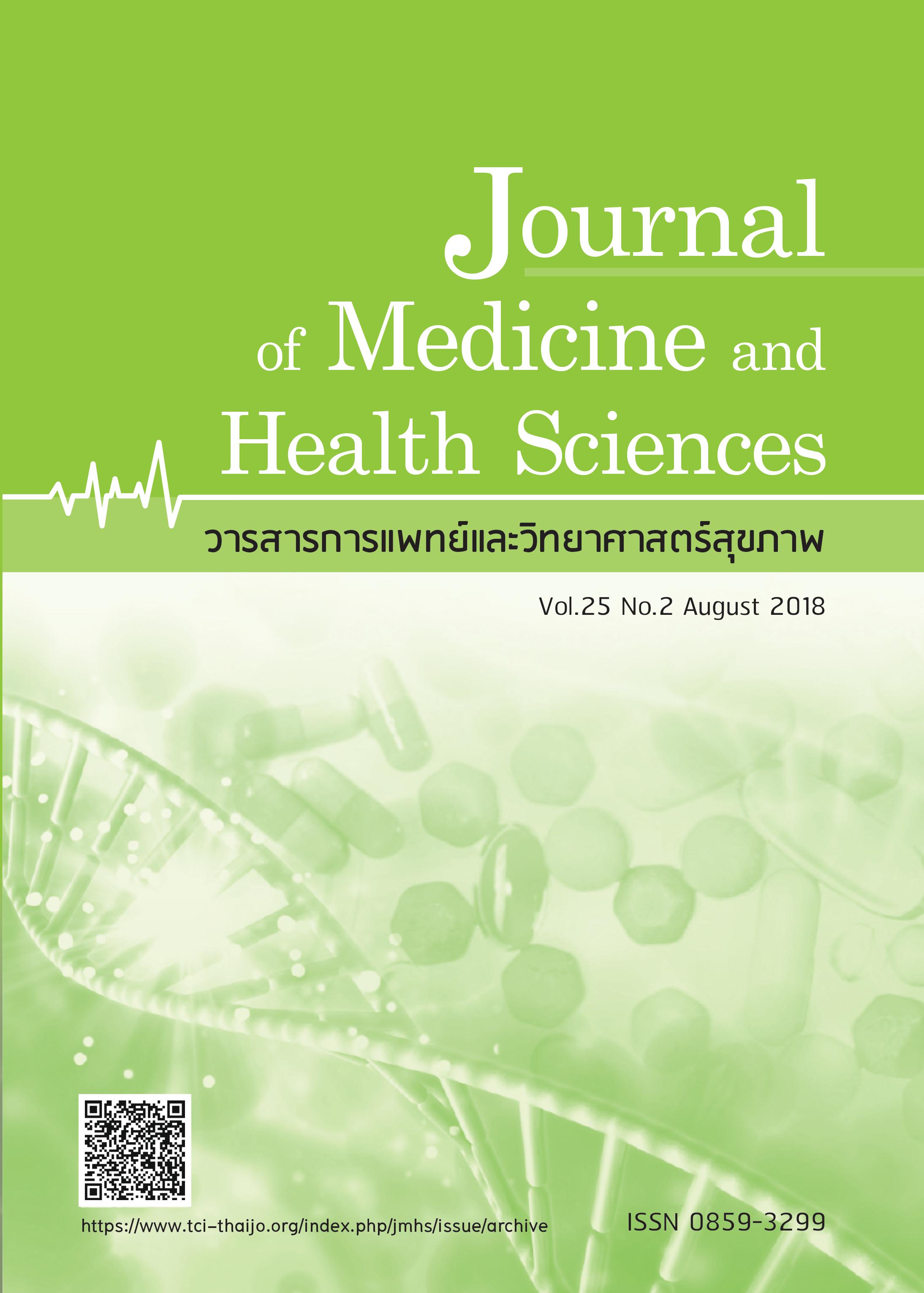Effects of glyphosate on oxidative stress in experimental animals and humans
Keywords:
glyphosate, oxidative stress, DNA damage, herbicidesAbstract
Glyphosate is extensively used in an agricultural sector because of their high effectiveness of weed control. Recently, it has been found that glyphosate causes an effect on genes and oxidative stress. Oxidative stress is a condition that human body produces more free radicals, resulting in protein destruction, lipid peroxidation production, DNA damage, and antioxidant reduction. Therefore, this review article aimed to review (1) situation glyphosate usage in Thailand; (2) toxicology of glyphosate; (3) oxidative stress; and (4) effects of glyphosate on oxidative stress in experimental animals and humans. Form literature review during 2006-2017, there were 14 articles studying the effect of glyphosate on oxidative stress in experimental animals; 2 articles found the effect on protein destruction, 5 articles found the effect on lipid peroxidation, 7 articles found the effect on antioxidant, and 7 articles found the effect on DNA damage. However, there were only three articles investigating in humans. Thus, the research regarding the effect of glyphosate exposure on oxidative stress in humans is necessary to warrant the health effect, and urge a national policy to control and restrict glyphosate usage in the future.



